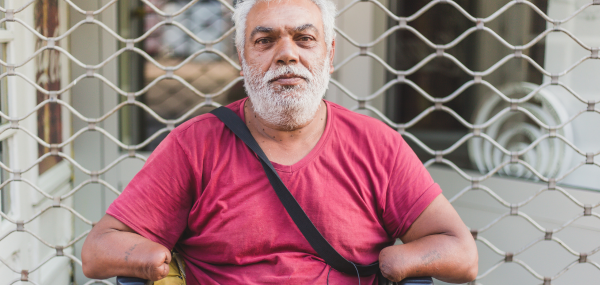Hubbie: Ieder Zinneke zijn thuis

Name of practice: Ieder Zinneke zijn thuis
Organisation: Hubbie vzw
Country: Flander region, Belgium
Funding: This is a pilot project funded by The Flemish Agency for Persons with Disabilities ((FAPD or VAPH).
Description of organisation: Hubbie supports people with disabilities in the Brussels Capital Region and is active in four domains
- Supporting persons with disabilities in the areas of living, work, leisure and learning
- Supporting mainstream services in adapting their services for persons with disabilities
- Bridging the gap and promoting inclusion
- Investing in influencing policy
Hubbie has an enthusiastic and expert team of 140 employees and 42 volunteers who support 400 users.
Description of practice: 'A home for every Zinneke'. ‘Zinneke’ is a statue from Tom Frantzen of a street dog and refers to all the residents of Brussels, at the crossroads of so many cultures, races, histories, ect. This project is a collaboration between several services for homeless people (CAW – centre for public welfare) and Hubbie. The aim is to reintegrate these people into society, taking account of their talents and abilities and supporting them where necessary so that they can live the life that suits them best. The objectives behind the development of this practice were: A more appropriate form of support for homeless people with disabilities (HPWD) and To achieve this, support workers from Hubbie and CAW conduct the accompaniments together; Detection of homeless persons with disabilities and to achieve this, they discuss cases during team meetings within the service for homeless people to help them recognise and support people with disabilities; ;Training for homeless support workers, for example to learn about disabilities, legal possibilities, and the rights of persons with disabilities, and to deal with specific topics such as adapting communication methods, socio-emotional development and so on.
To implement this practice, the support workers from Hubbie go to the services for homeless people to work there together with the user or the team.
Impact and sustainability: The programme's target group are homeless persons with disabilities (HPWD) and the support workers in the services for homeless people in the Brussels Capital Region. On average, the cooperation's team directly support 12 homeless persons with disabilities. Users can leave but also re-enter the programme. By training the support workers in the services for the homeless people, the impact is much bigger and goes beyond these 12 persons.
Scalability and transferability: This practice has a direct impact on the high-quality service provided to people with disabilities in serious distress. While homeless support workers can focus on helping them arranging their paperwork, finding a home, medical health, and other urgent matters, Hubbie can focus on ‘who the person is’ on the long run, their qualities, their needs for support, the choices they want to make and how they want to live their lives in the future.
Therefore, we establish a strong and formal cooperation with the services for the homeless people: joined forces guarantee a much better result. We are confident that the Flemish Agency will convert the project resources into regular subsidies.
This methodology can easily be used in similar projects.
Contact information: Lieve Dekempeneer,

